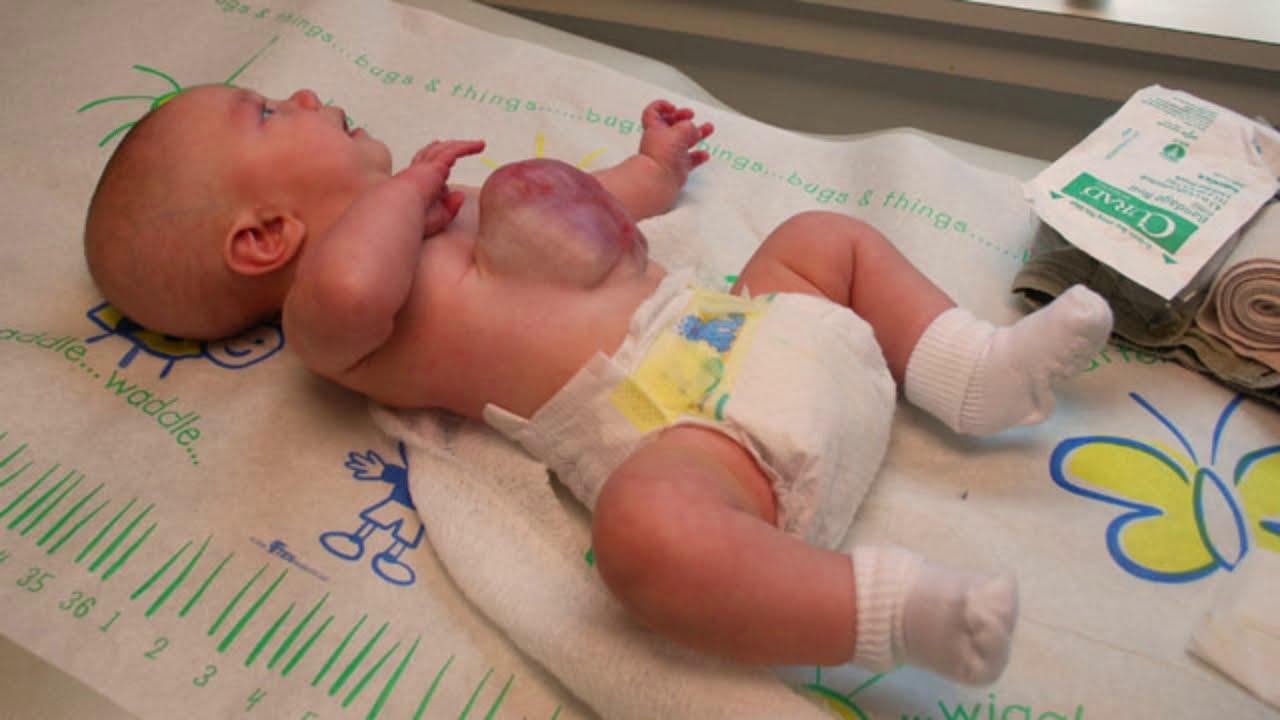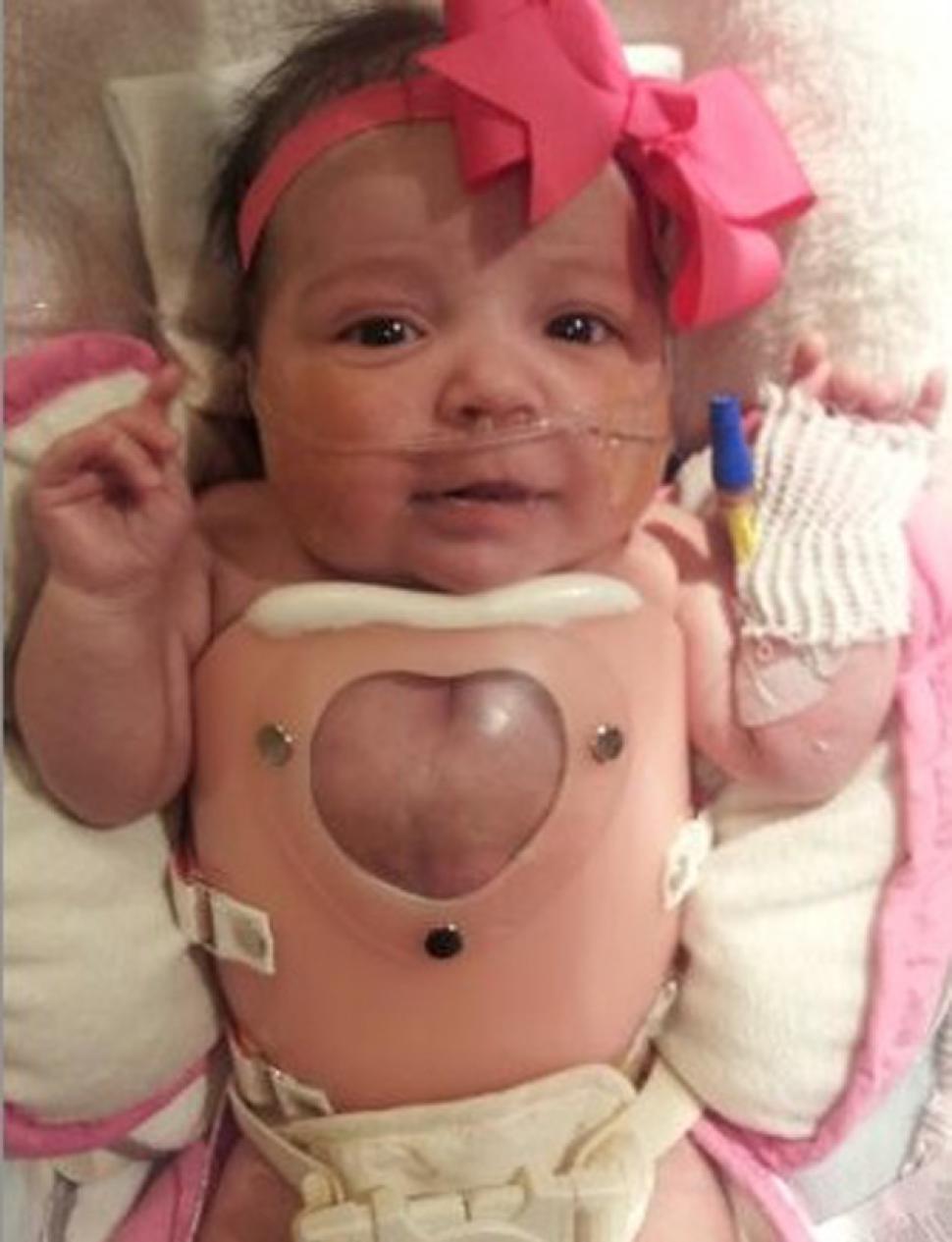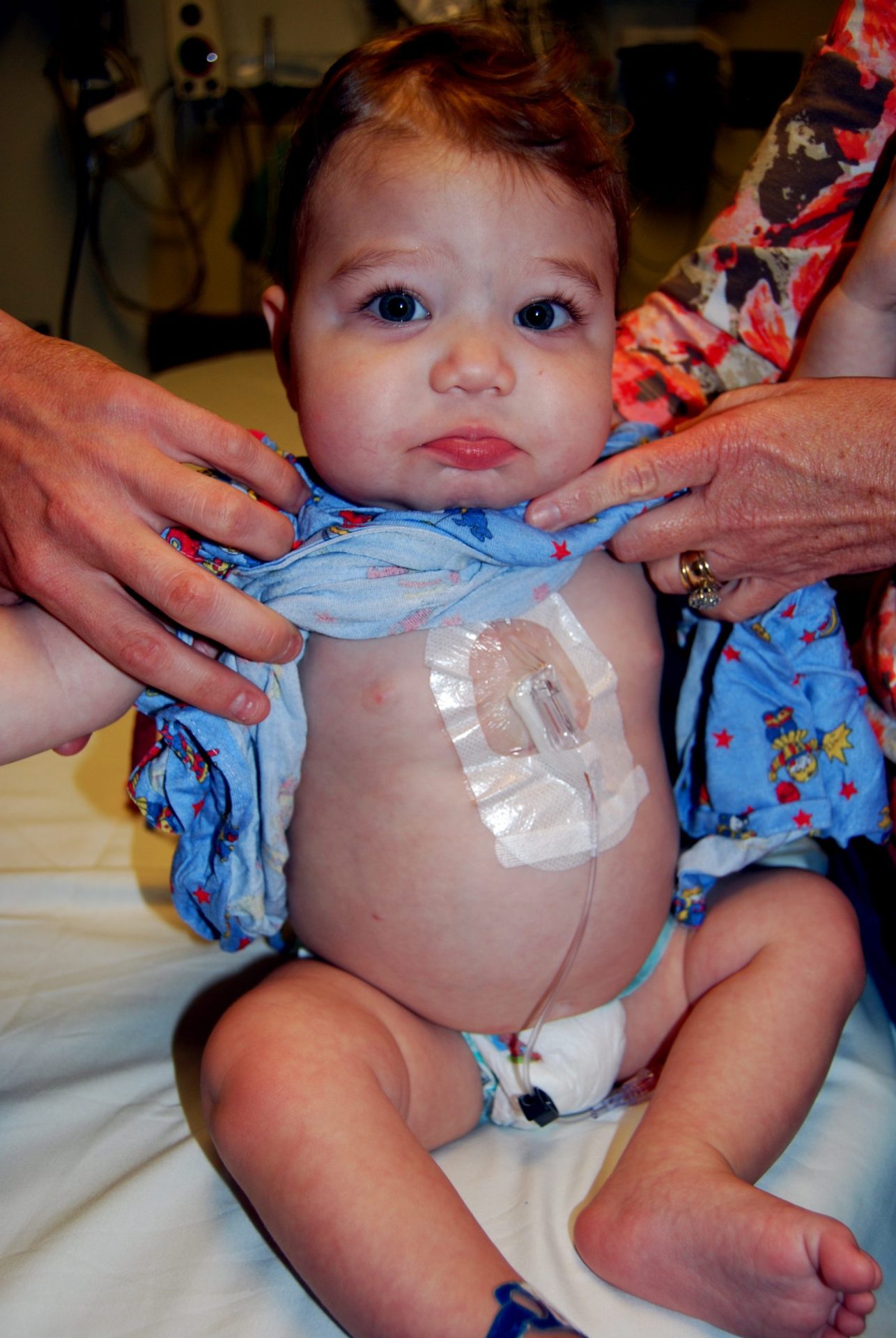

In the coming years, the infant will undergo an additional surgical procedure to implant a more permanent protective shield inside the chest. This step is designed to ensure ongoing protection and proper functioning of the infant’s heart.
Following the surgery, a team of specialists and pediatric cardiologists will continue to regularly monitor the infant’s progress at the hospital where the surgery was performed. Thorough health assessments will be conducted to ensure optimal recovery.
In summary, the infant has undergone a successful surgery and is gradually recovering. Continuous monitoring and attentive care from the medical professionals will pave the way for a healthy future, allowing the infant to develop similarly to other babies.
Throughout this procedure, the infant will undergo close observation to confirm the proper functioning of the heart and identify any potential complications. Pediatric cardiologists and other specialists will conduct routine examinations and tests to evaluate the infant’s progress.
Beyond medical supervision, the family will receive guidance on managing the infant’s health at home. This involves observing signs of abnormalities, adhering to medication schedules, and creating a secure and comfortable environment for the infant.

The infant will also be placed on a suitable diet and activity plan to promote optimal growth and functioning of the heart muscle. The family will be provided with consultation and guidance on these aspects to ensure the infant’s maximal development and health.
Despite facing challenges, the infant, with dedicated care from the medical team and support from the family, can overcome obstacles and enjoy a healthy future. Consistent follow-up and routine care will contribute to the infant leading a normal life without encountering heart-related issues.
Post-surgery, the infant will continue to receive regular monitoring and care from a specialized medical team for an extended period. Periodic tests, such as echocardiograms and blood tests, will be conducted to assess the heart’s normal development and function.
Pediatric specialists and cardiologists will closely examine the infant’s progress and, if necessary, make adjustments to the care plan. Monitoring for unusual signs or symptoms, such as anemia or irregular heart rhythms, will guide further interventions.

The family will be educated on daily care measures to support the infant’s health, including maintaining a nutritious diet, encouraging appropriate physical activity, and preventing negative impacts on the heart, such as stress or exposure to pollutants.
Moreover, the family will receive counseling on safety and preventive measures to minimize potential complications. This may involve strategies to limit exposure to bacteria and infections, practicing good personal hygiene, and avoiding activities that pose risks to the heart.
Throughout this process, the collaboration between the family and the medical team remains crucial to ensuring the infant’s optimal health. By adhering to instructions and the care schedule, the infant can continue to develop and lead a normal life, albeit with certain heart-related considerations.
In cases where the infant experiences heart-related problems or complications during monitoring and care, the medical team will recommend appropriate interventions, such as medication adjustments or additional surgeries.
Families must also be educated on recognizing warning signs and emergency measures, empowering them to respond effectively to situations like cardiac arrest or respiratory distress. Maintaining contact information for the medical team ensures prompt support when needed.
Emotional and psychological support is equally important throughout this journey. Families and infants may benefit from support groups and counseling services specializing in heart defects, helping them navigate the challenges associated with a health condition.
Looking ahead, the infant’s monitoring and care will persist into adulthood, with regular health check-ups, developmental assessments, and tailored care plans. Despite the potential challenges related to heart health, with the right support and care, the infant can enjoy a fulfilling life, participating in everyday activities like any other child.





